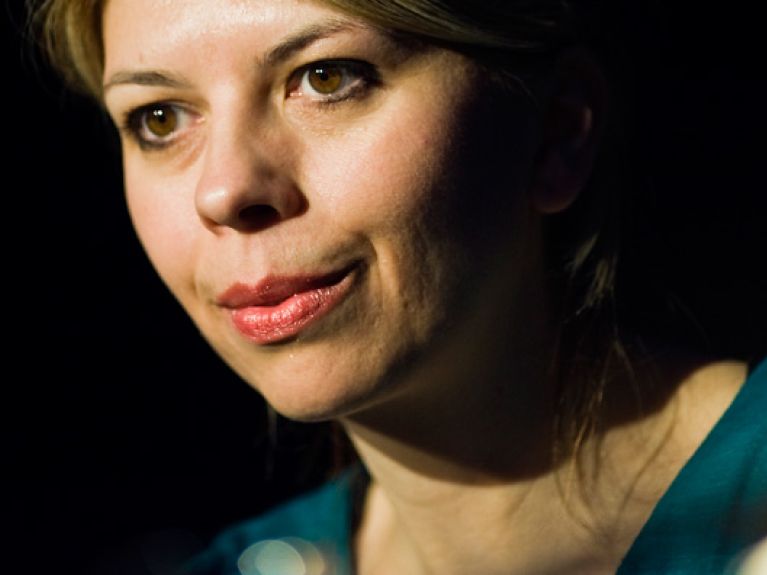De interview with Marica Bodrožić
An interview with the Berlin-based European Union Literature Prize winner Marica Bodrožić.

Marica Bodrožić was born in 1973 near Split in Croatia. At the age of ten, she moved to Germany where she learned German as her “second mother tongue”. In 2013 she was warded the Literature Prize of the European Union for her novel Kirschholz und alte Gefühle (i.e., Cherrywood and Old Feelings).
You come from former Yugoslavia, from the region of Dalmatia. What role does that play in your life?
I always like being in Dalmatia; my mother lives there, many of my relatives live there. Yet it isn’t an object of yearning, but rather something that exists in my daily life. I have multiple homelands – wherever I have friends, there’s also something of me, whether in America, Germany or Croatia. Despite all the difficulties, and despite the war, there’s something I learned from former Yugoslavia: to have no national identity. Multilingualism and the multicultural were always there for me. It’s something like a natural state.
Now you live in Berlin, like the main characters of your most recent novels, Nadeshda und Arjetta. They both feel very comfortable there, as you apparently do as well. Why is that?
Berlin has about it something non-ideological; it hasn’t been defined to the end. Paris is wonderful too, but Paris has been thought through. Berlin is a city that is always on the move. I also like all the languages swirling around me there. I hear French, Italian, then Turkish and of course German. This is very similar to the natural state that I described. I feel very at home in Berlin. I’ve lived there for over ten years and plan to stay there.
You are concerned very intensely with the power of memory. Why has this become so central for you?
It’s connected to the process of becoming a writer – which originally I didn’t want to become at all. It’s also connected to a specific moment of my life. I wanted to preserve the memory of my deceased grandfather – his face, the way he looked when he rang the bell or cooked for us. When I was studying in Frankfurt, I was reading scholarly texts very intensely. In the collision with this scholarly language, something happened inside me; there was this first image of love, and that was my grandfather. Since then I’ve been fascinated by the question of where memory starts and who actually produces it. How does it work, what does it depend on? In my case, it has always been bound up with language.

